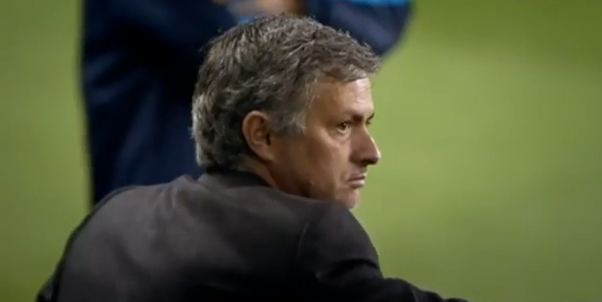Italy vs Austria: 4 things we learned following Azzurri triumph
After a highly successful group stage campaign, Italy then prepared to take on Austria in the round of 16. The Azzurri have arguably been one of the most impressive sides at this summer’s Euro championship. Not only did Roberto Mancini’s men win all three of their group stage games, they also did so without conceding a single goal. And for a team that generally is viewed as a an ultra-defensive outfit, Italy showed that this is a totally new look side, as they racked up seven goals against Wales, Turkey, and Switzerland.
With that in mind, Italy were viewed as the favorites against Austria, who qualified for the round of 16 after finishing second in their quartet. Das Team were mostly solid, yet not spectacular over the course of their three games, where they predictably beat both Ukraine and North Macedonia and lost to the Netherlands. They didn’t look particularly impressive against the North Macedonians, as the Eastern European minnows managed to equalize via veteran striker Goran Pandev before they needed to really crank things up to put the match to bed, and had to work way harder than expected to earn a vital win over Ukraine.
However, the match against Italy didn’t turn out as many had expected. Although Italy eventually won, it was a much more intense battle than predicted.
Here are four notable observations from Italy’s victory over Austria in their round of 16 tie on Saturday.
Austria decide to tinker with their approach – and it nearly pays off
One thing many people noted during Austria’s match against North Macedonia was David Alaba being deployed in a rather unfamiliar position. Those who’ve followed him during his time at Bayern are more used to seeing him playing as a left-back, where he’s able to get forward and get involved in attacks. However, Alaba, who recently departed the Allianz Arena to complete a switch to Real Madrid, was being used as a central defender, and it was certainly not paying dividends for Austria.
But against Italy, Austria decided to take a totally different approach. Not only was Alaba back in his preferred position, but also the team as as whole were more proactive. Gone was the ultra defensive, ultra conservative approach that they used during the group stages. Now, Austria were willing to commit men forward and put pressure on their opponents. And it nearly paid off. For the first time in this competition, Italy were matched wit for wit throughout; indeed, they were unable to find a breakthrough until extra time, so it will be very interesting if this takes its toll on Italy down the line.
Unfortunately for Austria, their new approach didn’t pay off fully. Sasa Kalajdzic’s late goal put a great deal of pressure on Italy, but it wasn’t enough to undo the two goals they’d conceded before. Still, they can be proud of their achievement. Austria had never qualified for the knockout rounds, and had some decisions gone their way, they just may have been able to push things to spot-kicks – where it’s everyone’s game.
VAR ends up having an impact on the match – to the detriment of Austria
Before conceding two goals in extra time, Austria had two goal-scoring opportunities that may have gone their way – were it not for VAR. Marko Arnautovic’s header actually had broken the deadlock in the 65th minute, only to have VAR rule it out, while Stefan Lainer’s penalty shout was also overruled. In short, luck wasn’t on Austria’s side; a few years ago, the headlines may have been written differently as the game only had the referee and linesman’s eyes to count on. Both these potential goals came well before Italy grabbed the two goals that would be enough to fire them into the quarter-finals – who knows how the match would have turned out had either of these been considered?
Italy’s deep bench proves to be the deciding factor
Italy may have had to really battle for every ball and blade of grass, but the Azzurri were eventually able to come out on top. What made the difference was the players who can come off the bench, and Roberto Mancini’s decision to bring on Federico Chiesa turned out to be a master stroke. The former Fiorentina starlet, now on the books at Juventus, had found game-time hard to come by, but he made sure to show his manager why he’s knocking at the door for a spot in the starting XI. So far, the goals have come from Ciro Immobile, Lorenzo Insigne, and Manuel Locatelli, but now Chiesa can add his name to that list.

Having a bench with players who can come in and influence the game is especially vital as the competition approaches its latter stages, and Italy have proven that they have just that – which certainly can help them make their case as they look to push on towards a hopeful spot at the final on July 11th.
Italy showing they should be considered as serious contenders?
It was quite from an impressive performance from Italy, but the Azzurri still got the job done. That’s what is essential – can a team still get through even if they’re not at their very best? Or was Italy’s win partly due to a great deal of luck, namely with VAR coming to the rescue? Detractors will certainly say yes, especially how subdued they looked as compared to their swashbuckling performances at the Stadio Olimpico.
Considering that Italy won’t be playing any more games in the Eternal City, they’ll need to get comfortable with playing away from home if they want to get to the semis – and perhaps the final. The opposition will get a lot tougher, as they’re set to take on Belgium for a coveted spot in the final four, and they won’t be able to count on VAR to necessarily bail them out.
All in all, though, Italy have exceeded many people’s expectations. They’ve now set a new national record for the longest undefeated streak, and Gianluigi Donnarumma has shown why he’s regarded as one of the best young goalkeepers in the world. The Azzurri have also shown they can defend as well as they can attack, although this will be really put to the test against the team ranked as the number one outfit in the world. If they can see off Belgium, Italy definitely have done enough to be viewed as major contenders for the top prize; after all, anyone who makes it to the semi-finals have a one in four chance of winning it.



